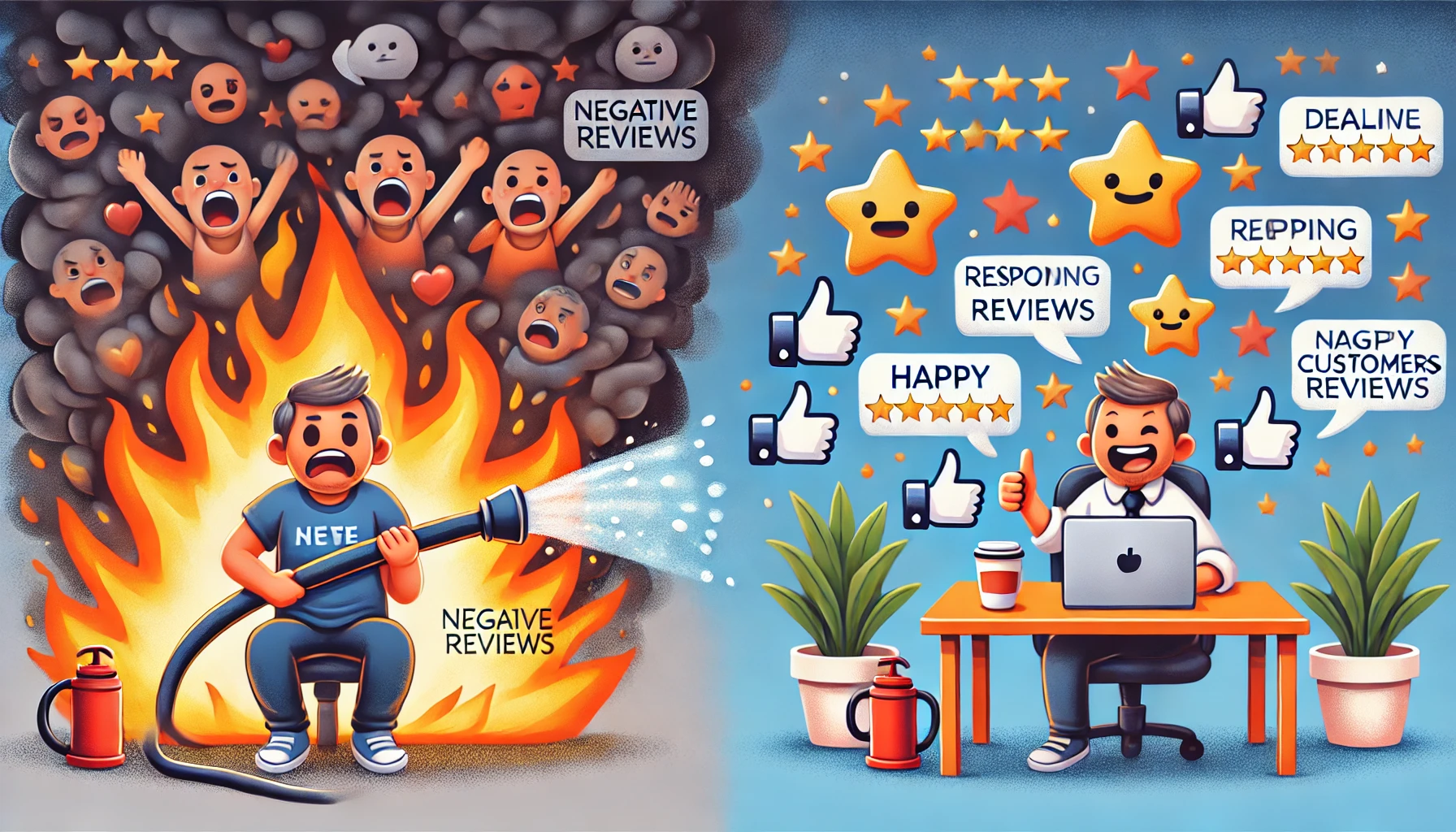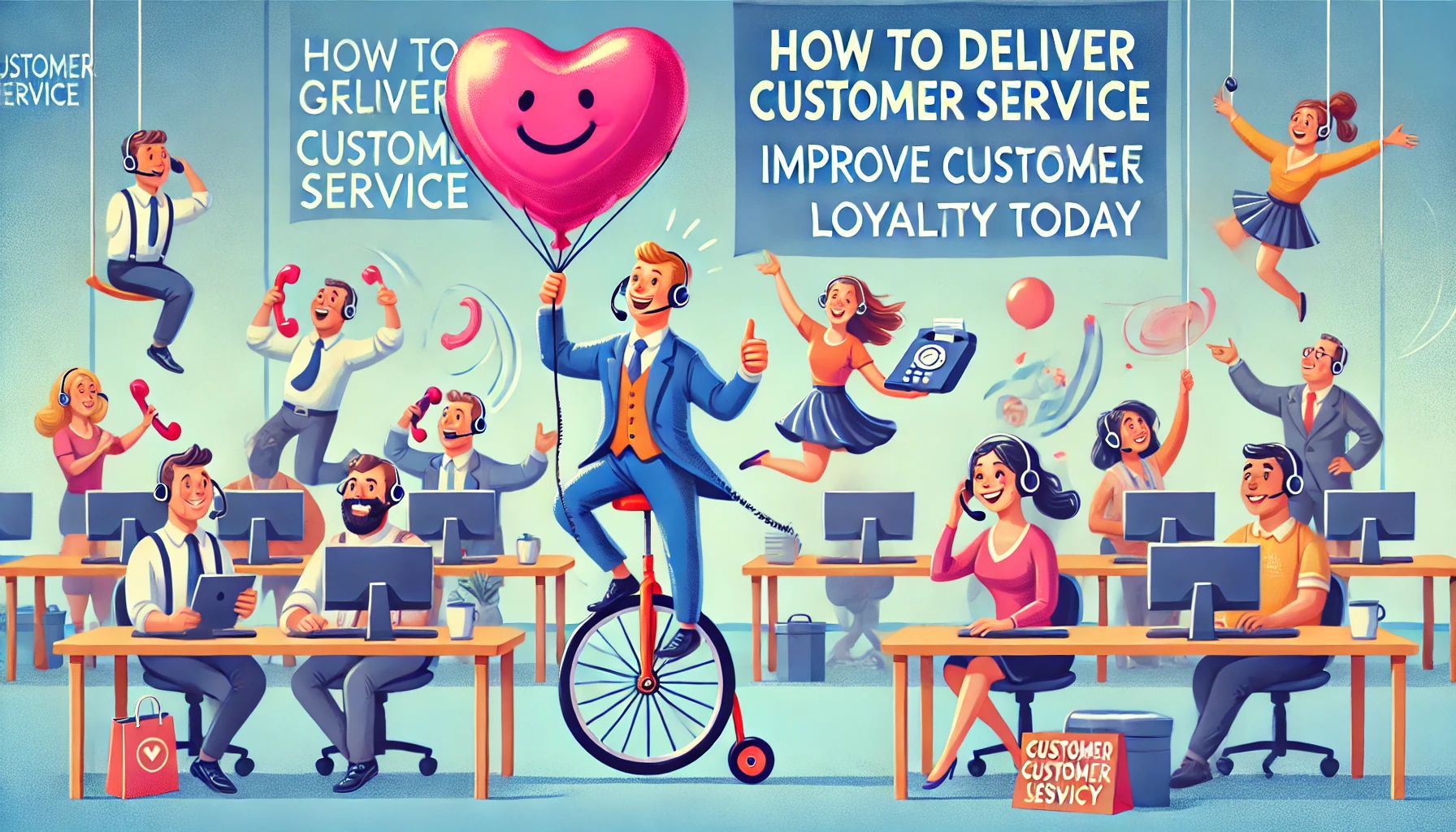Common myths about online reputation: Uncover truths, enhance trust
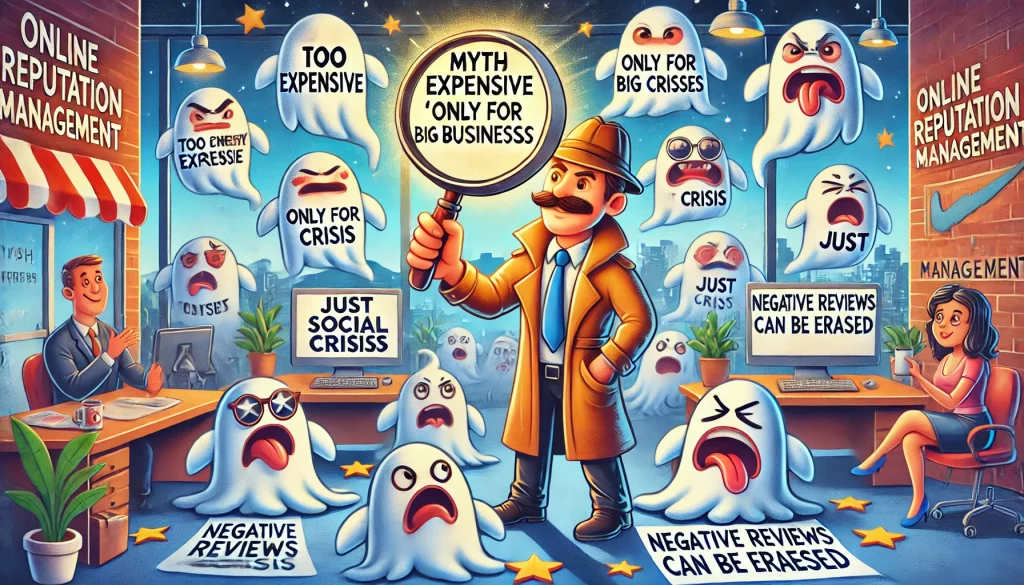
Online reputation management (ORM)
Managing your business’s online reputation is crucial as potential customers frequently search online, compare businesses, and read customer reviews before making decisions. With 81% of consumers researching online before purchasing, effective use of search engines and social media is essential to gain and maintain customer trust.
However, misconceptions about online reputation management can harm your business if believed.
Breaking down the myths
Negative reviews can be deleted
Once a negative review is posted online, it is nearly permanent. While some websites claim they can remove negative reviews, legitimate reviews are critical indicators of customer satisfaction and are typically not removable.
According to a 2023 study, 70% of online reviews are considered authentic and cannot be easily removed. However, if a review is clearly false or malicious, you might be able to contest it by flagging it for the platform’s review.
Engaging constructively with genuine negative reviews by acknowledging the issue and promising improvement is a more effective response.
Having no online reputation is better than having negative feedback
An absence of online reviews can make potential customers suspicious. Over 90% of customers consult online reviews before purchasing, so having no online presence can be detrimental.
In fact, 78% of consumers trust online reviews as much as personal recommendations. It may suggest that your business is too new or outdated. Interestingly, having a mix of reviews, including some negative ones, can lend credibility to your business, as 95% of consumers find an all-positive review profile suspicious.
Your online reputation isn’t in your control
There’s much you can do to influence your online reputation positively. While you can’t remove negative feedback or create fake positive reviews ethically, you can respond to unhappy customers and possibly persuade them to revise their negative reviews.
Research from 2024 shows that 89% of customers are more likely to engage with a business that responds to reviews. Encouraging all customers to review your services online can also enhance your reputation.
You need hundreds of positive reviews to build a great online reputation
A handful of detailed, positive reviews can significantly influence potential customers. Research indicates that 88% of consumers can form an opinion by reading fewer than 10 reviews.
Additionally, 80% of consumers read reviews before making a purchase decision, and a few recent, positive reviews can be just as effective as hundreds of less detailed ones.
Online reputation management services are time-consuming
Managing your online reputation doesn’t have to be a drain on your time, especially with the right tools. According to recent findings, 65% of businesses that use reputation management software report a significant reduction in time spent on managing reviews.
While it involves monitoring reviews across various platforms and responding to them, several services can streamline and simplify this process for you.
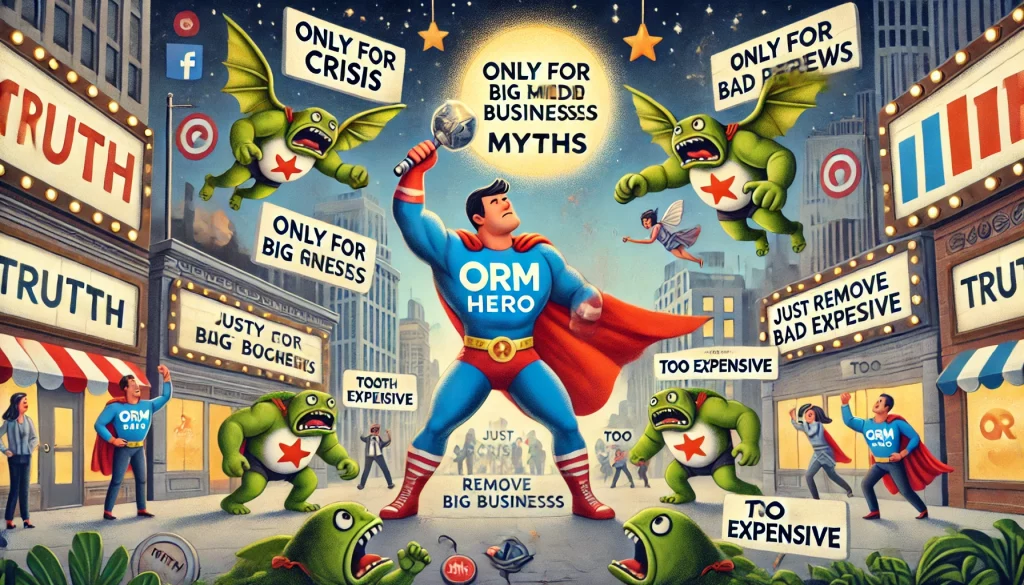
ORM is unnecessary unless you’re a large brand
ORM is crucial for businesses of all sizes, especially small and medium enterprises, which might be more vulnerable to the impacts of negative reviews. Effective ORM helps build trust and credibility, which are vital for long-term success.
In fact, 73% of small businesses report that managing their online reputation has directly contributed to increased customer trust.
ORM only matters during crises
While ORM is beneficial in a crisis, its real value lies in the everyday management of a business’s online presence. Proactively addressing negative feedback and promoting positive interactions fosters trust and enhances business reputation consistently.
According to a 2023 survey, 58% of businesses that actively manage their online reputation experience improved customer loyalty and engagement.
ORM is limited to social media
ORM extends beyond social media to encompass all online channels where a brand might be discussed, including review sites, blogs, and news articles. Comprehensive monitoring across these platforms ensures a holistic view of a business’s online reputation.
Data shows that 67% of consumers check multiple sources before making a decision, highlighting the importance of broad ORM efforts.
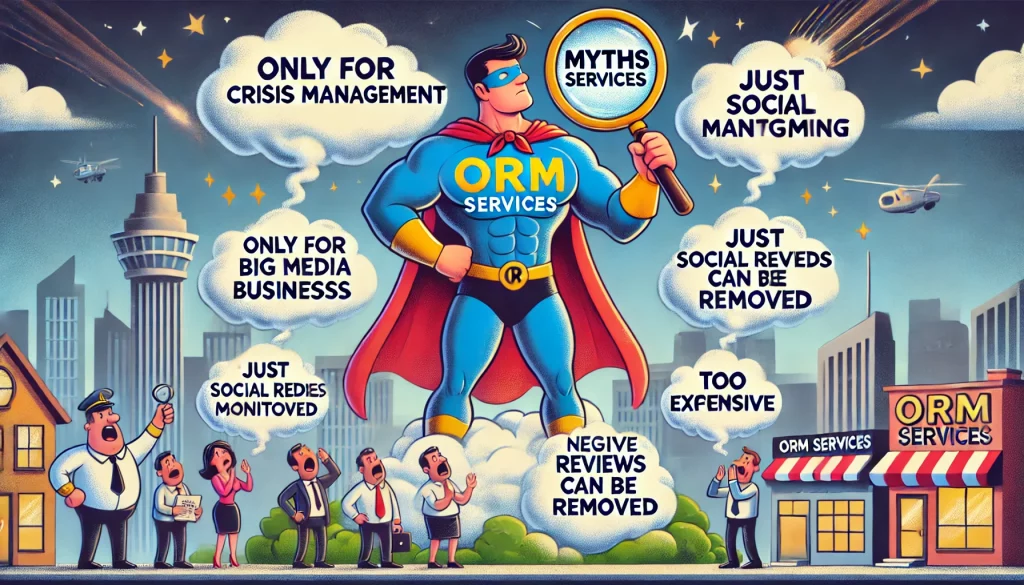
ORM is simple and can be handled internally
Effective ORM requires specific skills, such as data analysis and strategic content management, which might not be available in-house. Partnering with professional ORM agencies can offer expertise and save resources in the long term.
Studies reveal that 54% of companies that outsource ORM see higher returns on their investment compared to those who manage it internally.
ORM can completely eliminate negative content
While ORM strategies can mitigate the impact of negative content, they cannot erase it entirely. The focus should instead be on managing customer relationships and improving service quality in response to feedback.
Research indicates that 77% of consumers prefer businesses that respond to negative reviews with solutions rather than just removing negative content.
ORM is expensive
The cost of ignoring online reputation management can far exceed the investment in ORM. Negative reviews and feedback can significantly damage a brand’s reputation and financial standing.
In fact, businesses that invest in ORM see a 26% increase in overall customer satisfaction, highlighting the long-term value of ORM.
Only businesses with negative reviews need ORM
ORM is not just about managing negative content; it is equally about promoting positive experiences and maintaining a proactive stance on all online platforms to safeguard a business’s reputation. A recent study shows that proactive ORM can increase positive reviews by up to 42%, making it beneficial even for businesses with a good reputation.
Understanding and actively managing your online reputation can significantly attract new customers. With the right approach and tools, you can effectively manage your business’s online image, turning potential challenges into opportunities for growth and customer engagement.
By addressing these myths with factual insights, businesses can leverage ORM to not only prevent reputation damage but also to enhance their online presence and customer relations effectively.
![]()
Expert opinions on reputation management services
Eliot Grant, consumer behavior analyst “A negative review is not the end but a beginning. It’s a chance to open a dialogue and address the underlying issues. This not only potentially reverses a negative situation but also demonstrates to other customers that you’re a responsive and caring brand.”
Nina Patel, head of marketing at SEO solutions “The idea that deleting negative reviews can clean up your online presence is not just unethical, it’s impractical. The focus should instead be on accumulating genuine positive feedback through excellent service and engaging positively with those who leave negative remarks.”
Richard Gomez, online crisis manager “Ignoring your online reputation because you think it’s out of your control is like ignoring a leak in your roof because you didn’t cause the rain. Taking charge of your online narrative is not only possible, it’s crucial in steering public perception positively.”

 6 min
6 min 
